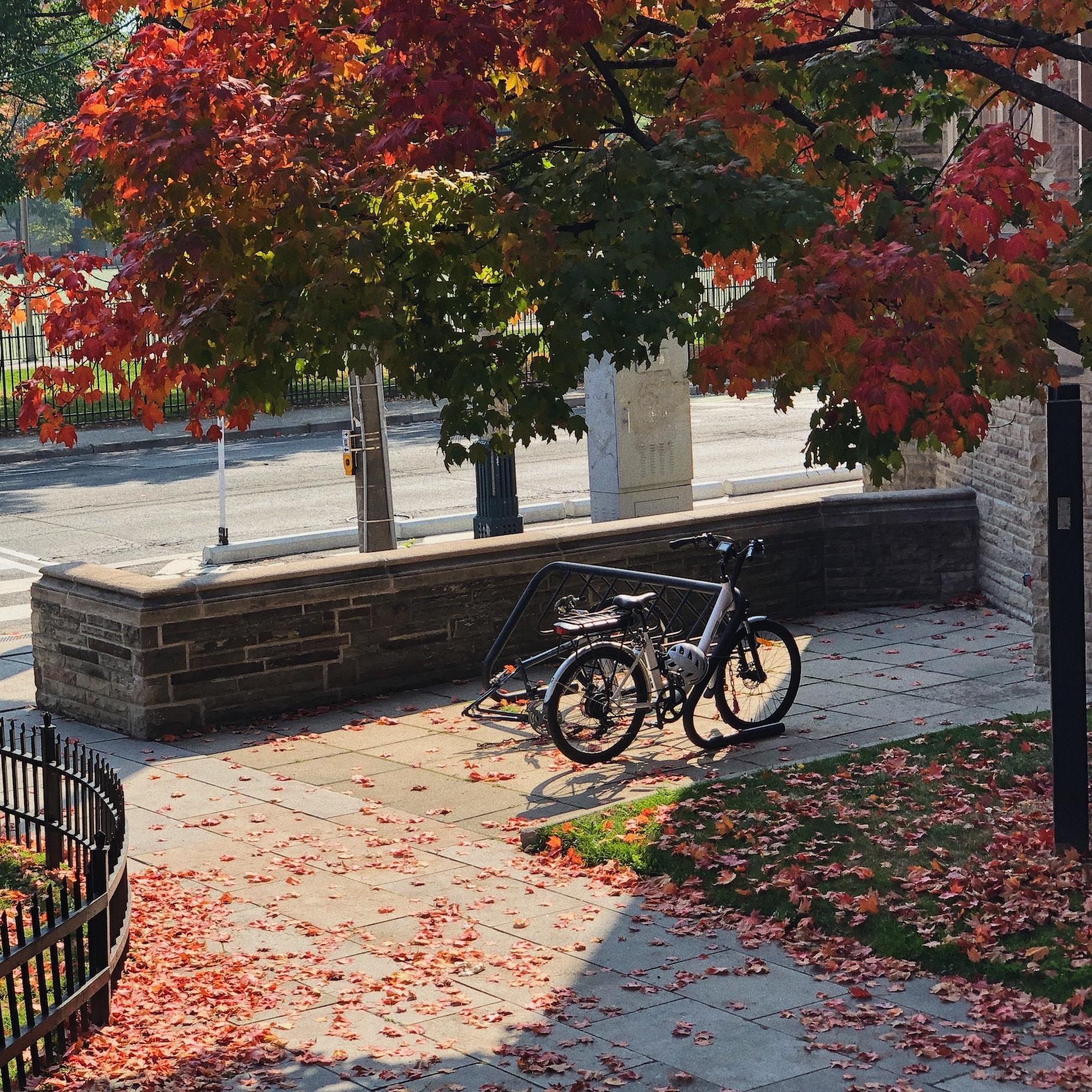
09 Oct How to Prep Your Condo for Fall: Saving Energy Tips
Saving energy is great. It keeps your condo fees—and your rent!—low, slows environmental damage, and helps you do your bit to keep the power on next time there’s a major storm. When you’re living in a condo—and especially a rental condo—there’s only so much about your energy consumption you can alter. But that doesn’t mean you’re powerless, pun intended.
Here are five energy-saving tips to try out as the weather cools that can help you keep fighting the good fight.
Know when off-peak hours are, and use them
Toronto Hydro rolled out smart meters specifically to move energy usage to off-peak hours—the times when businesses shut up shop and the city’s power usage goes down—so the infrastructure that delivers our power lasts longer. As an incentive, power companies offer significantly lower rates per kilowatt during off-peak hours, and penalize peak-time usage a little with higher hydro prices.
As a condo resident, you’re much less likely to be affected by the day-to-day cost of the power you use; that’s all included in your condo fees or the rent you pay. But doing your laundry, running your dishwasher, or doing other energy-intensive tasks during off-peak hours—traditionally, evenings after 7:00 pm and weekends—will reduce system stress, save your condo building money on its power bill, and get you into good habits well in advance of moving on to an individually metered unit, townhouse, or detached house.
While off-peak hours shift a little throughout the year, mostly according to when the sun rises and sets, Toronto Hydro always posts the hours for peak and off-peak times on its website and keeps them well up to date.
Embrace insulating curtains
Most of the heat in a condo unit bleeds out through the windows—an effect that’s palpable during the depths of winter, when just sitting near a large window can mean feeling the cold radiate in. You can’t insulate that wall of windows. If you’re renting, you can’t even personally reinforce them. But you can hang curtains that’ll do the job for you.
Curtains with a white backing—which most condo boards love to mandate—help out in the summer, by reflecting the sun’s heat out of your unit and keeping AC costs low, but for winter the sweet spot is thermal insulating curtains. They have an extra layer of foam lining, a vapour barrier, and a heat-reflective coating to keep warm air from making its way out through your windows, vastly reducing the amount of heat your heater needs to produce to keep your unit warm.
What’s more, on sunny days, you can just pull them open—and save energy by using the free light and heat the sun’s just handing out.
The benefits? You’ll save a bunch of energy as your heater has an easier time keeping your condo’s temperature stable. Your condo’s power usage will go way down in the winter—heat is the biggest electricity expense during those months. And if you’re prone to dry skin, chapped lips, or stuffy noses, you’ll have an easier time of it this winter as using less constant heating means having less dry air forced through your living space.
Insulating curtains are available at most hardware stores and big-box retailers, and they’re not expensive by the standards of curtain-buying. Check ’em out online or in the home section most convenient to you.
Clean your filters
The cleaner the filters in your home are, the more efficient they are—and the less energy your fans and ventilation need to do their jobs. Since fans and vents can be passive systems, triggered by temperature changes, it’s extra important to keep them working away at their full potential when it comes to saving power.
Most condo buildings will schedule a heating/cooling filter change regularly, and seasonally, but if your building doesn’t provide that service, find out how to access your filter panel and make sure it’s clean and replaced seasonally. If you have fans in your bathrooms, find out from your property manager or landlord what kind of maintenance they need, and keep their vents dust-free and clean.
The filter most people don’t consider, however, is the one in their stove hood. If your stove has a fan attached to keep smoke from smelling up the place, that fan’s filter needs regular TLC. Your stove may actually have instructions attached on how to clean the hood filter—especially if it’s part of a floating microwave installation—but if not, check out the make and model online and fold filter cleaning into your tidying routine. Frequently it’s just a good soak, and the end result is getting to run your stove fan lower, or for a few minutes less, and get the same great results.
Choose your light bulbs carefully
As fall starts and winter approaches, the days get shorter and shorter, and the need to use lamps and light fixtures go up hard. It’s the time when most of us find we need to replace the light bulbs we’ve barely used all summer, as the increased usage makes them burn out relatively quickly.
The next time you head out for replacement bulbs, check out the energy-saving options first. Yes, they’re more expensive, but that’s not a lifestyle markup: Energy-saving bulbs last longer, work harder, and give you more hours of light than the old incandescent kind for 25% of the energy cost. LED bulbs are the optimum, lasting six times as long as incandescent bulbs, but experiment with the types of light each throws and see what works with your space as well as your budget.
Ditch the heating and grab the blankets
The standard advice is to turn down the thermostat as low as comfortable during the winter months, saving money on that big expense, home heating. If you’re not sure that’s a way you want to live—or if you’re very sensitive to cold—try small compensations to find your workable comfort zone.
Take your thermostat temperature down three degrees and add an extra blanket to your bed, or just don’t take off that sweater and change into a tee shirt when you get home. It’s an approach that’s worked for years in Japan, where central heating is sidelined for dressing more warmly, inside and out, during the winter months. The bonuses? You’ll sweat less in bed, keeping your sheets cleaner; you won’t need to run as much laundry, saving more power, because you’ll make better use of clothes that are built for both your indoor and outdoor temperature; and you’ll put yourself at a lower risk of sniffles, as your body stops having to react to drastic temperature changes every day.
—
These are all small changes, but they make big differences. Try one or two at a time, leave time for your habits to adjust, and see the difference it makes in your landlord’s condo fees—and your next year’s rent.
Do you own an energy-efficient unit that you would like to earn passive income on? Be sure to contact us today to learn more.


No Comments